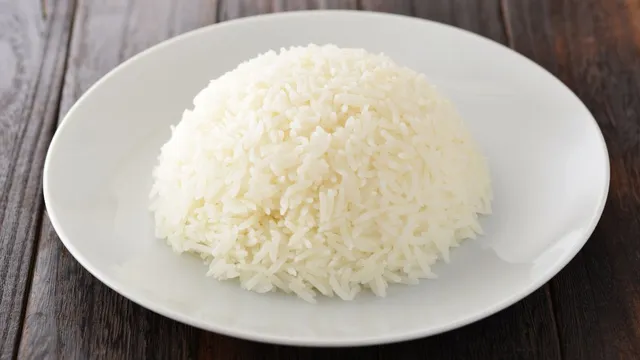- By Iram Hussain
- Mon, 17 Feb 2025 05:07 PM (IST)
- Source:JND
Rice is a comfort food that never fails to satisfy. This beloved staple is cherished worldwide for its unique properties. Rice is easy to digest, making it an excellent option for those with sensitive stomachs. Additionally, it is relatively low in saturated fats and boasts good cholesterol levels compared to other foods. Its versatility and adaptability have cemented its place as a global favourite.
Despite its numerous benefits, one question lingers: is eating cold rice healthy? If you are someone who is also seeking the answer to this, you've landed in the right place. Here, we've listed the health effects of eating cold rice that you might not know about.
Effects Of Eating Cold Rice
Coolant
Eating cold rice is believed to have a cooling effect on the body, bringing down its temperature and protecting against heat stroke.
Gas And Bloating
Consuming cold rice can have a downside as it may lead to increased gas and bloating. The cold temperature can slow down digestion, causing discomfort and unease. Additionally, the resistant starch in cold rice can be difficult for some people to digest, exacerbating digestive issues and discomfort.
-1739792014845.jpg)
Effects of eating cold rice (Image Credits: Canva)
Regulates Blood Sugar Level
Eating cold rice can be beneficial, thanks to its high resistant starch content. This starch helps regulate blood sugar levels and cholesterol levels in the body. By slowing down the digestion of carbohydrates, resistant starch can also aid in maintaining healthy blood sugar levels.
Food Poisoning
Eating leftover rice can be hazardous to your health, particularly due to the presence of Bacillus cereus, a bacteria commonly found in rice. This bacteria can multiply rapidly in cooked rice, especially when left at room temperature. Consuming cold rice can lead to food poisoning, nausea and vomiting.
ALSO READ: Curd With Rice or Curd With Roti: Which Is A Healthy Choice For Better Digestion?
ALSO READ: 5 Side Effects Of Quitting Rice And Roti You Should Know About
(Disclaimer: This article is for informational purposes only. It is not a substitute for professional advice, diagnosis or treatment.)

